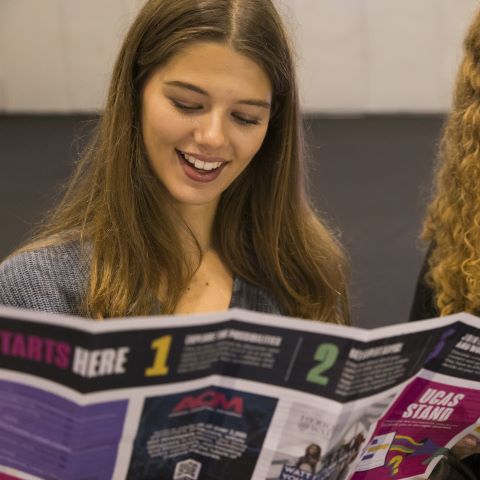
Options and higher education (HE) days are pivotal moments in a student’s academic journey and now is a great time of year to be offering them. They help shape future pathways and open doors to new possibilities. They’re an opportunity to delve deeper into topics and give students the information they need to move forward. Here are five top tips to ensure your event is informative, engaging, and meaningful.
1. Start planning early
Early preparation is crucial. Begin organising in advance to secure speakers, many of whom will be in high demand at this time of year. Be mindful that you may need a large space like the school hall if you’re working with a whole year group, which might not always be available, so book early and coordinate with your facilities team and reception staff to manage the setup and welcome visitors professionally.
2. Make it student-centred
Tailor the day to suit the needs and interests of your students. Use surveys or tutor time discussions to find out what they’re most curious or concerned about, whether it's vocational training, university life, or application specifics like how to write a new style personal statement. This helps create a schedule that's relevant and engaging. UCAS has produced Mission Cards which will give your students inspiration for relevant questions to ask during the event that can get them the information they need to narrow down their choices and make more informed decisions.
3. Involve a range of stakeholders
Involve universities, colleges, training providers, local employers, alumni, and current students to show the huge variety of opportunities. Real-world insights make the information more relatable and inspiring and break down stereotypes. It allows them to be inspired when they can see themselves in those they are listening to.
4. Use interactive formats
Young people engage best when they’re actively involved. Avoid long, lecture-style presentations and instead offer a mix of hands-on activities, small group discussions, quizzes, and scenario-based workshops. Encourage students to ask questions and explore ideas in a supportive setting. Think about what will capture their attention and make the content feel relevant to their lives and future choices.
5. Follow up and reflect
The day shouldn’t end with the final bell. Provide follow-up materials like course guides, HE prospectuses, and links to useful websites like the UCAS Hub where they can shortlist their options and explore pathways, as well as the opportunity to speak to trained careers professionals to help them make sense of it all. Encourage students to reflect on what they learned, and hold debrief sessions in tutor groups to discuss next steps, using the UCAS Hub to further assist their learning.
And don’t forget that as well as running your own event, you can take students to one of the 52 UCAS Discovery Tour events. These are held around the UK and bring hundreds of providers and employers to your doorstep, along with careers professionals to answer any questions you or your students may have.



